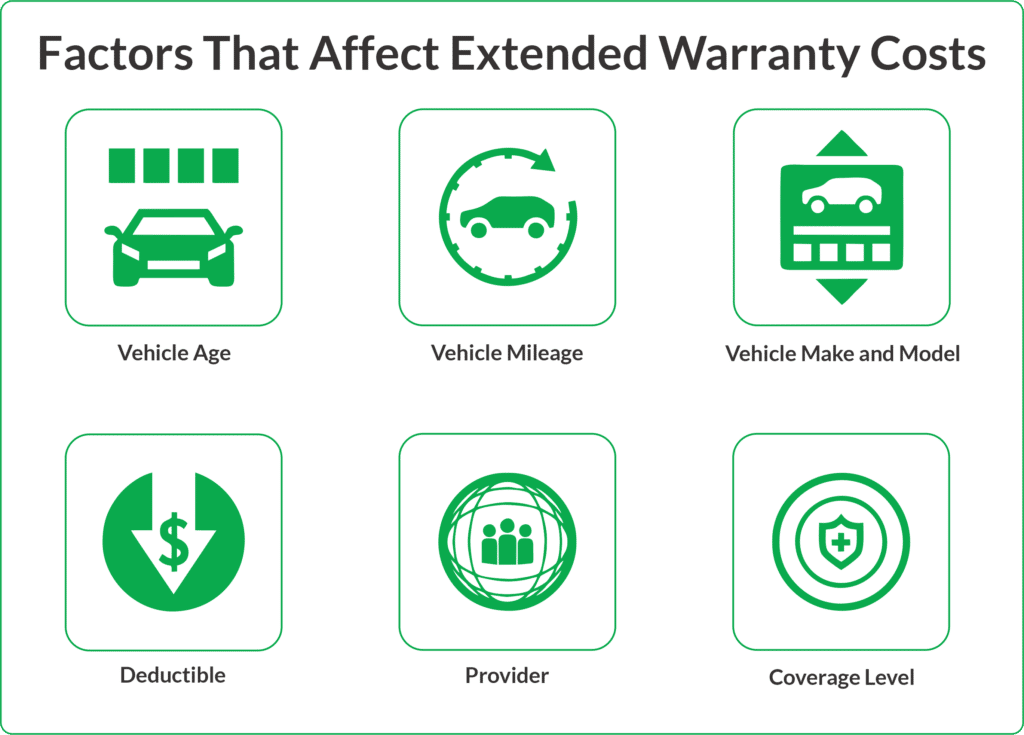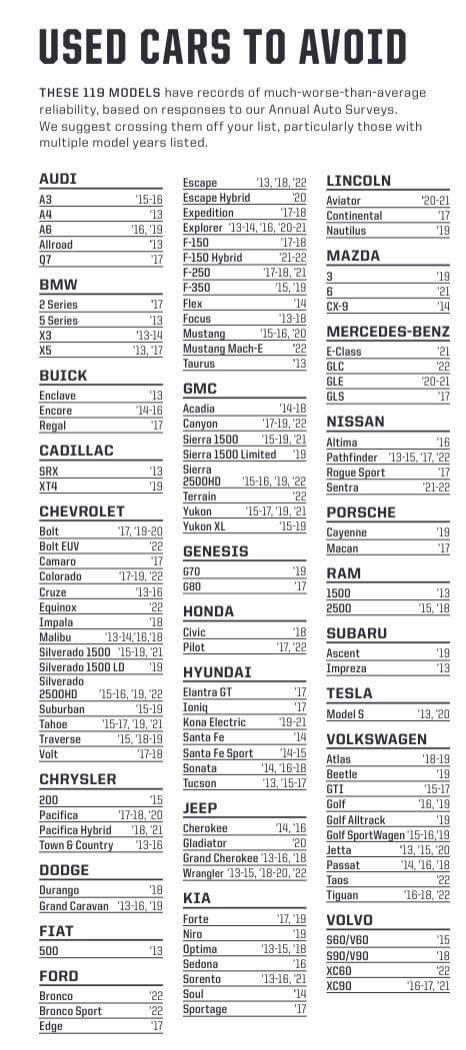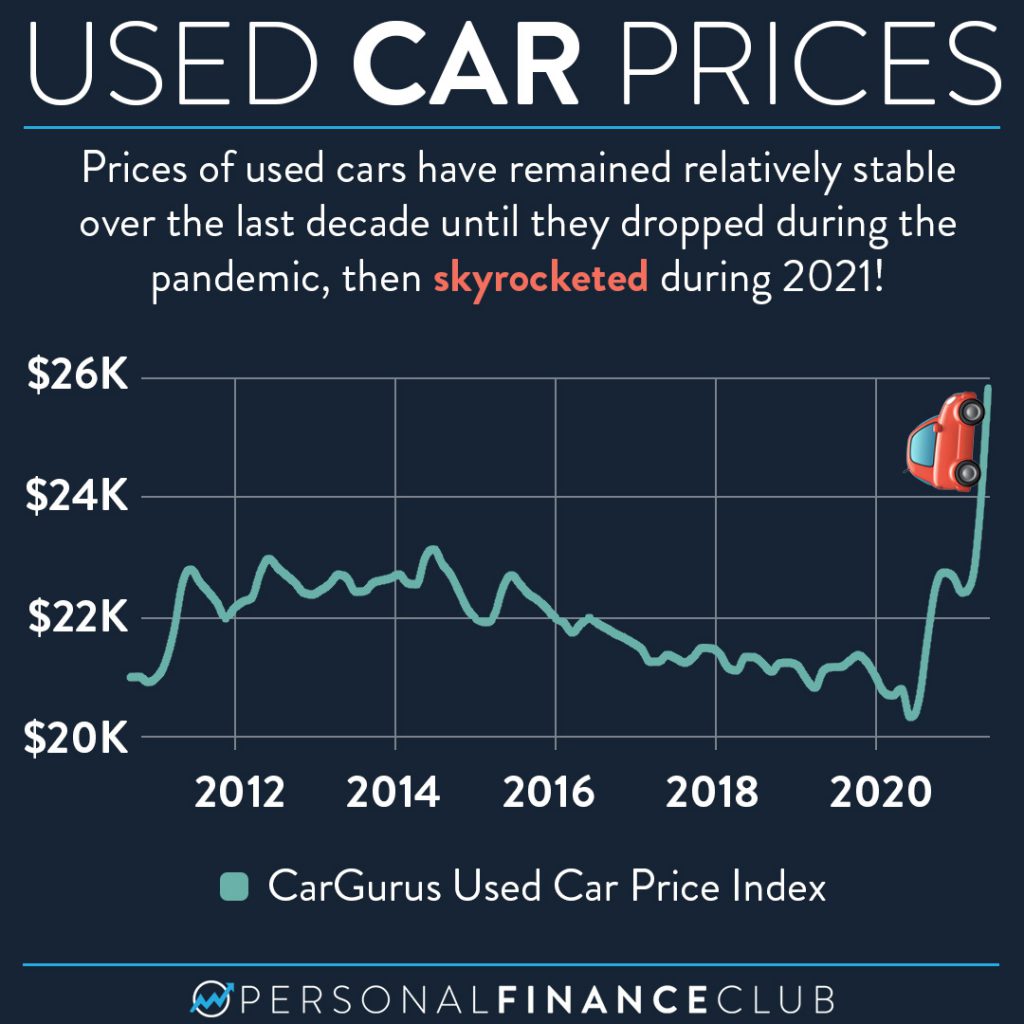How Much is an Extended Warranty on a Used Car
An extended warranty on a used car typically costs between $1,000 and $4,500. Prices depend on the vehicle, coverage, and deductible.
Navigating the waters of car ownership can be tricky, especially when considering the potential costs of unexpected repairs down the road. An extended warranty, often referred to as a vehicle service contract, offers peace of mind to those purchasing a used car.
This form of protection covers repair costs that a manufacturer’s warranty might not, and can significantly shield your wallet from the financial surprises that accompany car issues after the standard warranty expires. It’s a strategic investment to mitigate the risks associated with pre-owned vehicle repairs, as long as the coverage details align with your car’s needs and your personal budget. Keep in mind each warranty comes with its exclusions and limitations, making it essential to scrutinize the contract thoroughly before signing on the dotted line.
The Draw Of Extended Warranties For Used Cars
Buying a used car often brings a mix of excitement and uncertainty.
One way to ease concerns is through an extended warranty.
These plans offer coverage beyond the original, often expired manufacturer’s warranty.
Why Buyers Consider Them
Extended warranties appeal to car buyers for several reasons.
They promise to cushion repair costs and often include additional benefits.
Consider these key points:
- Cost Savings: Warranties can save on unexpected repair bills.
- Resale Value: Cars with warranties may fetch a higher price.
- Range of Coverage: Options vary from basic to comprehensive plans.
The Peace Of Mind Factor
Peace of mind carries significant weight for used car buyers.
An extended warranty can provide this comfort.
Breakdowns happen, and the costs can be high.
With a warranty, owners relax knowing they’re covered.
Cost Factors Of Extended Warranties
Understanding the cost factors of extended warranties is crucial for car buyers. This can help save money and avoid unexpected expenses. Let’s explore key factors that affect the price of an extended warranty for a used car.
Vehicle Age And Mileage
The age and mileage of a car play a big role in warranty cost. Older cars with more miles tend to have higher warranty prices. This is because they are more likely to need repairs. Here’s what to consider:
- Older vehicles: They may have limited warranty options and cost more.
- High-mileage cars: These might come with higher premiums since they’re closer to needing major maintenance.
Coverage Levels And Deductibles
Varying levels of coverage and diverse deductible rates impact warranty prices. Think about:
- Basic powertrain warranties: These are usually cheaper but cover less.
- Comprehensive bumper-to-bumper plans: They cover more but also cost more.
- Deductibles: Higher deductibles can lower the warranty cost upfront.
Brand And Model Specifics
| Brand/Model | Reliability | Warranty Cost Estimate |
|---|---|---|
| Luxury brands | May need specific parts | Generally higher |
| Mainstream brands | Typically less costly to fix | More affordable |
The make and model dictate warranty prices too. Luxury cars with specialized parts can inflate costs. Popular models from reliable brands may offer savings on warranties.
Comparing Extended Warranty Providers
Choosing an extended warranty for a used car is crucial. It can save you from unexpected repair costs. But not all warranties are the same. It’s important to compare providers. You will find two main types: dealership warranties and third-party plans. Let’s explore the options.
Dealership Vs. Third-party Plans
Dealerships offer extended warranties when you buy a car. Third-party providers sell plans separately. Dealership plans are simpler. You deal with the car seller. Third-party plans can be less costly. They offer more choices.
- Dealership Warranties: Easy to buy with your car. You know the coverage.
- Third-Party Warranties: Often have lower prices. More flexibility. They can cover more issues.
Reputation And Reliability
Check the provider’s reputation. Look at customer reviews. See ratings from Better Business Bureau (BBB). Reliability matters. You want a company that stands by their warranty.
- Look for positive feedback from other customers.
- Choose providers with a solid history in the business.
- Ensure they have strong financial stability.
Claim Process And Customer Service
The claim process should be easy. Good customer service is key. You must get help when you need it. Quick response times are critical. A simple claim process ensures fast repairs.
- Find out how you can file claims.
- Check if you can choose your repair shop.
- See if they offer 24/7 customer support.
Analyzing The True Value
Deciding on an extended warranty for a used car often feels like navigating a maze without a map. The true value of these warranties is not always clear. Yet, understanding their cost versus potential savings is crucial. This deep dive aims to clarify the worth of an extended warranty when investing in a pre-owned vehicle.
Breaking Down The Total Cost
When examining extended warranties, the sticker price is just the tip of the iceberg. There are various factors that contribute to the total cost:
- Deductible amounts: Lower deductibles mean higher premiums.
- Coverage level: More comprehensive plans cost more.
- Vehicle age and mileage: Older cars with more miles often incur higher warranty prices.
Contrasting these costs with the vehicle’s value is essential. Is the warranty price reasonable compared to the car’s worth?
Weighing The Odds Of Repairs
To determine if an extended warranty makes sense, consider:
- Repair history: Does the car model have a record of reliability or costly fixes?
- Average repair costs: Some parts are pricier to replace.
- Personal peace of mind: Is avoiding potential stress worth the expense?
Consulting these points helps to balance the scales between today’s cost and tomorrow’s unknowns.
Long-term Benefits And Risks
An extended warranty’s real value often shows in the long run. It may:
- Save money on unexpected, high-priced repairs.
- Enhance resale value if the warranty is transferable.
- Provide convenience with additional services like roadside assistance.
Yet, there’s a risk of purchasing a warranty you might never use. A thorough analysis of your driving habits, budget, and car history is vital before committing to that extra layer of protection.
Smart Buyer Strategies
When you’re considering an extended warranty for a used car, it’s essential to have a game plan. Smart buyer strategies can save you money and offer peace of mind. Your goal is to secure the right coverage without overpaying. Unlock the secrets with these tactical approaches.
Negotiating The Best Price
Like any transaction, there’s room to negotiate the price of an extended warranty. Keep these pointers in mind:
- Do your research: Know the average cost of warranties for your car model.
- Shop around: Compare prices from different providers for leverage.
- Highlight your car’s condition: A well-maintained car might snag a lower rate.
Remember, dealers often mark up warranty prices. Your knowledge is power when negotiating.
Reading The Fine Print
The details in a warranty can save or cost you in the long run. Follow these steps:
- Understand coverage scope: What exactly does the warranty cover?
- Check the claims process: Ensure it’s straightforward.
- Look for loopholes: Don’t get caught by surprise exclusions.
Boldly ask questions to clarify any confusing terms. Never assume all warranties are the same.
Alternatives To Traditional Extended Warranties
Extended warranties come in many forms. Here are some options other than dealer offerings:
| Type | Advantages | Considerations |
|---|---|---|
| Third-party Providers | Often cheaper, customizable plans | Reputation varies, check reviews |
| Certified Pre-Owned Programs | Comes with car, backed by manufacturer | May be priced into car cost |
| Self-insure | Save for repairs yourself, no premiums | Requires discipline, risk of high costs |
Consider these alternatives and decide which mix of risk and cost works for you.

Credit: gomechanic.in
Case Studies: Extended Warranty Success And Regrets
Deciding on an extended warranty for a used car is tricky. Real-life cases shed light on potential wins and losses. These stories from car owners illustrate both sides of the story. Let’s explore how an extended warranty can be a saving grace or an unexpected burden.
Positive Outcomes
- Engine Repair Covered: John’s SUV engine failed two years post-purchase. The warranty covered repairs saving him $3,000.
- Transmission Peace of Mind: Emily avoided a $4,500 hit when her transmission went out and the warranty kicked in.
- Electrical Systems Relief: An electrical meltdown would have cost Alex $2,000. His extended warranty handled it all.
These success stories emphasize the protective benefits. Owners rest easy knowing costly repairs are not their burden. Extended warranties act as safety nets, securing against unforeseen repair bills.
When Warranties Fail To Deliver
- Pre-Existing Conditions: Mark’s warranty did not cover an engine issue deemed pre-existing.
- Deductible Surprises: Lisa faced a $200 deductible for each repair, making smaller repairs less beneficial.
- Wear and Tear Disputes: Sam’s brake pad replacement, considered regular wear and tear, was not covered.
These stories reveal the limitations and caveats. Owners sometimes confront coverage gaps and out-of-pocket expenses. It’s vital to understand warranty terms to avoid disappointment.

Credit: www.endurancewarranty.com
Frequently Asked Questions Of How Much Is An Extended Warranty On A Used Car
How Much Does Used Car Warranty Cost?
The cost of an extended warranty for a used car can vary widely. It typically ranges from $350 to $1,500 per year. Factors like make, model, age, and mileage can affect the final price.
What Does Extended Warranty Cover On A Used Car?
An extended warranty on a used car usually covers major engine and transmission components. It may also include electrical systems and other high-cost repairs. Always check the contract for specifics.
Is Buying An Extended Warranty Worth It?
Whether an extended warranty is worth it depends on multiple factors. Consider the car’s reliability, repair costs, and your financial situation. For many, it offers peace of mind against unexpected repair expenses.
How Long Can You Extend A Warranty For Used Cars?
Extended warranties for used cars can typically be purchased for terms ranging from one to seven years. The exact term you can choose will depend on the vehicle’s age and mileage.
Conclusion
Navigating the maze of extended warranties for used cars can be daunting. Costs vary, tied to vehicle type, coverage depth, and provider reputation. Remember, a warranty’s value depends on your needs and the peace of mind it offers. Shop wisely, read the fine print, and consider this investment against potential repair costs.
Make an informed decision to secure your automotive future.




